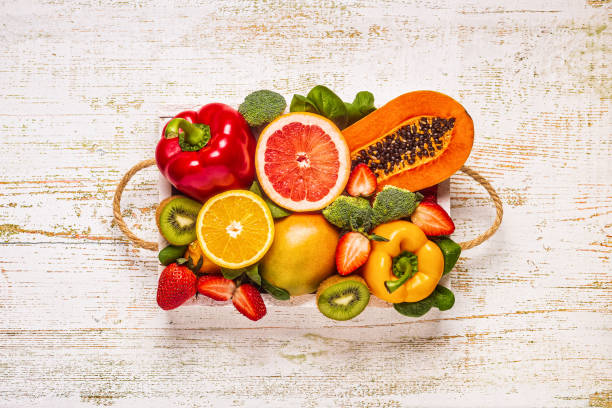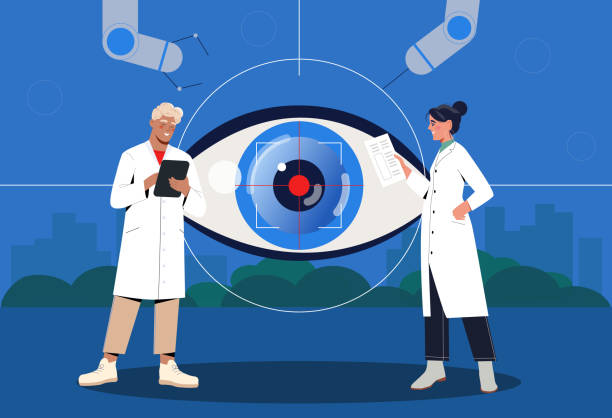Good vision is crucial for everyday activities, and taking steps to support eye health should be a priority for everyone. Simple habits like wearing sunglasses and limiting screen time can certainly help preserve your eyesight. However, what you eat plays an equally important role in maintaining healthy vision. A balanced diet rich in the right nutrients can significantly impact the overall health of your eyes. Certain vitamins and minerals, like vitamin A, omega-3 fatty acids, and antioxidants, are especially beneficial in supporting clear vision and preventing eye problems. By making mindful food choices, you can help protect and improve your eyesight for the long term.
In this article, we will dive into the key nutrients that play a vital role in supporting your vision and protecting your eyes from common issues such as cataracts, macular degeneration, and dry eyes. By learning about these essential nutrients and incorporating them into your daily diet, you can help maintain and improve your eye health for years to come. Whether you want to prevent vision problems or simply keep your eyes in top condition, these nutrients are important to know and include in your meals.
Key Nutrients for Eye Health
Your eyes depend on a range of vitamins, minerals, and antioxidants to stay healthy and function at their best. These essential nutrients help protect your eyes from damage and support clear vision. Below, we’ll highlight some of the most important nutrients that play a key role in maintaining optimal eye health:
1. Vitamin A: The Eye Health Powerhouse
Vitamin A is one of the most important vitamins for maintaining healthy eyes. It plays a key role in supporting good vision, especially in low light, and helps prevent night blindness. Vitamin A comes in two forms: preformed vitamin A (retinol) and provitamin A (beta-carotene). Retinol is typically found in animal-based foods, such as liver, eggs, and dairy products.
Beta-carotene, on the other hand, is found in plant-based foods like carrots, sweet potatoes, and leafy greens, and your body can convert it into vitamin A. Including both forms of vitamin A in your diet helps ensure optimal eye health and vision.
Benefits of Vitamin A for Vision:
- Supports the retina’s ability to process light and send visual signals to the brain.
- Prevents night blindness and supports low-light vision.
- Protects the surface of the eyes (cornea), reducing the risk of eye infections and dryness.
Sources of Vitamin A:
- Carrots
- Sweet potatoes
- Spinach
- Kale
- Liver
- Eggs
For optimal vision, aim to include a variety of these foods in your diet.

2. Vitamin C: The Antioxidant for Eye Protection
Vitamin C is a strong antioxidant that helps protect your eyes from oxidative stress caused by free radicals. These free radicals can damage the cells in your eyes, but vitamin C helps neutralize them. This vitamin is essential for maintaining the health of the blood vessels in the eyes, which ensures proper blood flow and nourishment.
Vitamin C also plays a crucial role in supporting the immune system, helping your body fight off infections that could affect your eyes. By including vitamin C-rich foods like citrus fruits, berries, and leafy greens in your diet, you can help safeguard your eyes from damage and maintain overall eye health.
Benefits of Vitamin C for Vision:
- Protects the eyes from damage caused by UV rays and pollution.
- Reduces the risk of cataracts by slowing down the formation of cloudy lenses in the eyes.
- Supports the healing of eye tissue and helps with the regeneration of healthy tissue.
Sources of Vitamin C:
- Oranges
- Strawberries
- Bell peppers
- Broccoli
- Brussels sprouts
For a boost in vision support, try to consume at least one serving of vitamin C-rich foods daily.
3. Vitamin E: Protecting Your Eyes from Aging
Vitamin E is another powerful antioxidant that plays a key role in supporting eye health. It helps protect the cells in your eyes from oxidative damage caused by free radicals, which can lead to vision problems over time. Vitamin E is also important for maintaining the function of the retina, the part of the eye responsible for processing light and sending visual signals to the brain.
By including vitamin E-rich foods such as nuts, seeds, and leafy greens in your diet, you can help protect your eyes from damage and support overall eye function.
Benefits of Vitamin E for Vision:
- Protects the eye from free radical damage and aging.
- Reduces the risk of macular degeneration, a leading cause of vision loss in older adults.
- Supports the immune system, reducing the risk of infections and inflammation.
Sources of Vitamin E:
- Almonds
- Sunflower seeds
- Spinach
- Avocados
- Olive oil
Incorporating more of these foods into your diet can go a long way in supporting long-term vision health.
4. Lutein and Zeaxanthin: The Eye-Defending Antioxidants
Lutein and zeaxanthin are two important carotenoids that play a vital role in protecting your eyes from harmful light and oxidative stress. These nutrients are naturally present in the retina, where they help filter out blue light. Blue light, which is emitted by screens and artificial lighting, can cause eye strain and, over time, may lead to long-term damage.
By including lutein and zeaxanthin-rich foods like spinach, kale, and other green leafy vegetables in your diet, you can help reduce the risk of eye strain and support long-term eye health.
Benefits of Lutein and Zeaxanthin for Vision:
- Help protect the retina from damage caused by blue light and UV rays.
- Support the prevention of macular degeneration and cataracts.
- Improve visual performance, especially in low-light conditions.
Sources of Lutein and Zeaxanthin:
- Kale
- Spinach
- Broccoli
- Eggs
- Corn
A diet rich in lutein and zeaxanthin can help improve eye comfort, especially for those who spend long hours in front of screens.

5. Omega-3 Fatty Acids: Essential for Dry Eye Relief
Omega-3 fatty acids are essential fats that are crucial for maintaining overall health, including eye health. These healthy fats help reduce inflammation in the body, which is important for preventing eye conditions like dry eyes. Omega-3s also play a key role in supporting the tear film, which is responsible for keeping your eyes lubricated and comfortable. By incorporating omega-3-rich foods like fatty fish (salmon, tuna), flaxseeds, and walnuts into your diet, you can support your eyes and reduce the risk of dryness and discomfort.
Benefits of Omega-3 Fatty Acids for Vision:
- Reduces the risk of dry eye syndrome by supporting the production of healthy tears.
- Protects the retina from inflammation and oxidative stress.
- May help prevent or slow the progression of age-related macular degeneration.
Sources of Omega-3 Fatty Acids:
- Fatty fish (salmon, mackerel, sardines)
- Flaxseeds
- Chia seeds
- Walnuts
If you experience dry eyes or have a family history of macular degeneration, omega-3s can be especially helpful.
6. Zinc: Supporting Night Vision and Retina Health
Zinc is an essential mineral that plays an important role in supporting the function of the retina and maintaining the health of the cells in your eyes. This mineral is crucial for good night vision, as it helps the eyes adjust to low-light conditions. Zinc may also help protect against age-related macular degeneration (AMD), a condition that affects the central vision as people age. By including zinc-rich foods like oysters, red meat, and pumpkin seeds in your diet, you can help support healthy vision and reduce the risk of eye problems as you age.
Benefits of Zinc for Vision:
- Supports the function of the retina and the transport of vitamin A to the retina.
- Reduces the risk of macular degeneration and cataracts.
- Enhances night vision and reduces eye fatigue.
Sources of Zinc:
- Oysters
- Beef
- Pumpkin seeds
- Chickpeas
- Lentils
For optimal vision support, include zinc-rich foods in your daily meals.

Additional Tips for Maintaining Healthy Vision
In addition to including these important nutrients in your diet, here are a few more tips to keep your eyes healthy:
- Stay hydrated: Drinking plenty of water helps maintain moisture in your eyes and prevents dryness, which is essential for clear vision.
- Limit screen time: Reduce digital eye strain by following the 20-20-20 rule—every 20 minutes, take a 20-second break and focus on something 20 feet away.
- Wear sunglasses: Protect your eyes from harmful UV rays by wearing sunglasses that offer UV protection, helping to prevent long-term damage.
- Get regular eye exams: Regular visits to an eye care professional are key for catching any potential vision problems early and maintaining optimal eye health.
Conclusion: Take Charge of Your Eye Health
Supporting your vision with the right nutrients is one of the most effective ways to keep your eyes healthy for the long term. Including a variety of eye-healthy foods in your diet, such as those rich in vitamin A, vitamin C, omega-3 fatty acids, and lutein, can help protect your eyes from common vision problems like cataracts and macular degeneration.
By making eye health a priority and taking proactive steps, you can enjoy clear and sharp vision while lowering the risk of serious eye conditions in the future. With the right diet and habits, your eyes can stay strong and healthy for years to come.
Are you ready to take charge of your eye health? Start by adding some of these nutrient-rich foods to your diet today. Share your thoughts on how you support your vision in the comments below, and let us know if you found this guide helpful!

